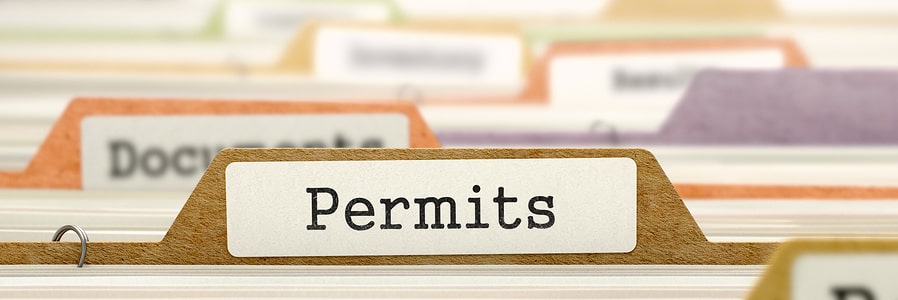
When you start a power washing business, it’s tempting to focus just on equipment and getting clients. But before you fire up your pressure washer, there’s one step that can save you from massive headaches down the road: getting legally covered.
Proper licenses, permits, and insurance protect your business, your finances, and your reputation. In this guide, we’ll walk you through everything you need to know — in plain English — so you can start your business with confidence. 💼✅
🧾 1. Register Your Business
Before you can get insured or licensed, your business needs to exist on paper.
🔍 Choose Your Business Structure:
- Sole Proprietorship – Easy and cheap, but no liability protection.
- LLC (Limited Liability Company) – Most popular for small service businesses. Offers personal liability protection and tax flexibility.
- Corporation – Not usually necessary for beginners, but useful if you’re planning to scale or bring on investors.
💡 Most power washers choose an LLC for protection and simplicity.
📋 What You’ll Need to Do:
- Choose a business name (e.g., “Hydro Clean Pros”)
- File formation documents with your state
- Pay the registration fee ($50–$300 depending on your state)
- Get an EIN (Employer Identification Number) from the IRS — it’s free and easy online
- Open a separate business bank account
📌 Pro Tip: Keeping business and personal finances separate makes tax time much easier and protects your personal assets.
📄 2. Local Business Licenses & Permits
Once your business is registered, you’ll likely need a local business license to operate legally in your city or county.
🏛️ Common Requirements:
- Business Operation License: Required by most local governments.
- Zoning Approval: Especially if you’re working from home or parking equipment at your house.
- Home Occupation Permit: If you’re running your business out of your garage or driveway.
Costs usually range from $50 to $200, and they typically need to be renewed annually.
📞 Call your city clerk’s office or visit your local government’s website to find exactly what’s required in your area.
💦 3. Water Discharge & Environmental Permits
One of the most overlooked legal areas in power washing is wastewater runoff. If you’re washing buildings, vehicles, or concrete surfaces, that water (especially with chemicals or detergents) may need to be contained or filtered.
🌍 You Might Need:
- A water discharge permit
- A stormwater pollution prevention plan (SWPPP)
- Use of a water reclamation system (if required by your state or city)
💡 This is especially important for commercial work or environmentally sensitive areas.
The EPA and local municipalities take water runoff seriously — and fines can be hefty. Don’t skip this step if you plan on doing jobs in commercial zones or near storm drains. 🌧️🚫
🛡️ 4. Business Insurance: Your Safety Net
Even the best power washer in the world can have an accident. One slip, one burst window, or one angry customer could cost you thousands — unless you’re insured. 🧯
🧾 The Must-Haves:
- General Liability Insurance: Covers property damage, bodily injury, and legal defense. You’ll want at least a $1 million policy.
- Tools & Equipment Insurance: Covers your gear if it’s lost, stolen, or damaged.
- Commercial Auto Insurance: If you use a truck, trailer, or van for work.
- Workers’ Compensation: Required in most states if you have even one employee.
💵 Cost:
- Liability insurance: $400–$1,200/year
- Equipment coverage: $150–$500/year
- Workers’ comp: Varies by state and payroll amount
- Auto insurance: $600–$1,500/year depending on coverage
📌 Pro Tip: Many insurance providers offer bundled business policies. Ask for a Business Owner’s Policy (BOP) to save money.
🧠 5. Optional: Industry Certifications
While not legally required, professional certifications can boost your credibility, especially when bidding on commercial contracts or working with environmentally sensitive clients.
🎓 Consider:
- PWNA (Power Washers of North America) – Offers safety training, environmental awareness, and industry standards.
- UAMCC (United Association of Mobile Contract Cleaners) – Provides certification and training for various services.
- OSHA Safety Courses – Helps with compliance and safety, especially if you grow your team.
🏆 These certifications signal professionalism and can make you stand out in competitive markets.
📂 6. Keep Records and Stay Compliant
Once you’re licensed, insured, and ready to go, don’t just forget about the paperwork.
Make sure you:
- Renew business licenses annually
- Keep insurance coverage active and up to date
- Maintain records of your jobs and customer contracts
- Track your income and expenses with accounting software (like QuickBooks, Wave, or Jobber)
💻 Keeping organized will make tax season and future growth much smoother.
⚠️ What Happens If You Skip This Stuff?
You might think, “I’m just cleaning a few driveways—why go through all this?”
Here’s why you shouldn’t skip it:
- Fines and shutdowns if you’re caught operating without a license
- No protection if you damage property (or someone sues you)
- Ineligibility for commercial jobs or insurance claims
- Loss of credibility — customers trust licensed, insured pros
Bottom line: Being legit protects you and helps you charge more because it shows clients you’re serious. 💼💯
✅ Final Thoughts
Power washing might look simple on the surface, but behind every successful operation is a solid foundation of legal and financial protection. Taking time to register your business, get licensed, and carry insurance isn’t just red tape — it’s peace of mind. It also opens doors to higher-paying jobs, contracts, and long-term success.
So before you blast your first sidewalk or driveway, make sure you’re covered from every angle. A few hundred dollars spent upfront could save you thousands — or your entire business — down the line. 💪📜💧
Browse Amazon Here For Commercial Pressure Washers And Accessories






